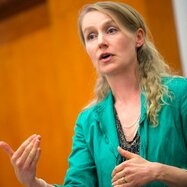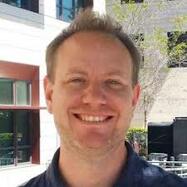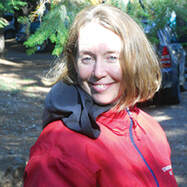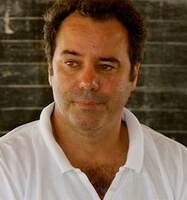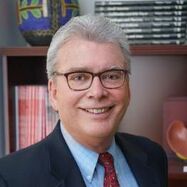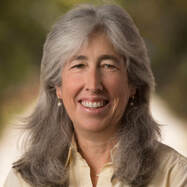CONGRATS to our 2021 Summer EJ Graduate Student Research Fellows!:
Toxic Soil: A threat to urban agriculture and food security in marginalized communities by Alexis Wilson
Alexis Wilson (she/her) is a second year PhD student in the Department of Earth System Science, a Graduate Public Service Fellow, and Graduate Fellow for the “Partnerships for Climate Justice in the Bay Area” Haas Center initiative. Her passion lies in understanding and combating environmental racism and climate injustices on local and global scales. Alexis’ current research focuses on identifying and remediating soil contamination in urban gardens, particularly in marginalized communities in the Bay Area. Her goal is to provide information to community members about the health of their soil, potential contamination, and options for remediation. She is pursuing this work in partnership with local environmental organizations and centering community-identified needs in the research process. She will use an interdisciplinary approach to advance our understanding of the important intersection of soil biogeochemistry, environmental justice, and food security, global issues becoming increasingly important.
Reimagining Just Resource Governance and Renewable Energy Transitions in Mexico by Zoe Vangelder
Zoe Vangelder is a 2nd year PhD student in the Anthropology department. Their research examines how agrarian indigenous social movements and allied solar engineers are articulating a vision for a just transition, empowering Mexico’s rural and indigenous communities to appropriate renewable energy technologies and reorient national conversations around energy use. They ask how these technopolitical encounters between indigenous activists and solar engineers might be articulating a new resource governance paradigm. Zoe’s work this summer will explore the mechanisms that enable the meaningful involvement of all people in the development and implementation of environmental policy, and asks how new stakeholders are reimagining the arts of democratic eco-governance to facilitate a just transition.
An Ethnographic Case Study of Hong Kong’s Anti-Land Reclamation Movement by Shan Huang
Shan is a 6th year PhD student in the Anthropology department whose dissertation examines how top-down developmental schemes in Hong Kong are confronted by grassroots actions aimed at promoting alternative urban futures. His work this summer will include completing and refining a chapter of his dissertation that focuses on the Farm to Table, an NGO-led project aimed at building an “agricultural community” on Lantau Island, Hong Kong. Farm to Table is specifically invested in concretely and collaboratively envisioning the possibilities of urban-rural cohabitation that are both socially just and environmentally friendly. Shan’s work seeks to understand what Farm to Table staff and affiliates do in local community to make these environmental and social visions tangible and participatory for both local residents and incoming citizens.
Understanding Social Drivers and Barriers to Sustainable Mobility in Sonoma County by Sita Syal & Nora Hennessy
Sita is a 4th year PhD candidate in the Mechanical Engineering department, whose work focuses on quantifying human influence and equity in sustainable energy systems models through an integration of qualitative and quantitative methods. Nora is a 3rd year PhD candidate in the Energy Resources Engineering department whose research focuses on equity and environmental justice in the energy transition. Together, as part of the Decommissioning ICE Vehicles (DIVE) research lab led by Dr. Margot Gerritsen, they are working to understand access to clean mobility benefits in Sonoma County. Their work this summer will involve engaging the low income and Latinx communities of Sonoma County in interviews to understand the transportation needs of the community and the barriers to electric vehicle adoption and removal of conventional vehicles from the road in these communities. They are working with Alegria De La Cruz, the county’s Chief Equity Officer, Efren Carrillo, Director of Government Relations and Co-Director of Housing Development for Burbank Housing, and Karen Eggerman, DIVE project partner and Partner at Tensleep Advisory.
Alexis Wilson (she/her) is a second year PhD student in the Department of Earth System Science, a Graduate Public Service Fellow, and Graduate Fellow for the “Partnerships for Climate Justice in the Bay Area” Haas Center initiative. Her passion lies in understanding and combating environmental racism and climate injustices on local and global scales. Alexis’ current research focuses on identifying and remediating soil contamination in urban gardens, particularly in marginalized communities in the Bay Area. Her goal is to provide information to community members about the health of their soil, potential contamination, and options for remediation. She is pursuing this work in partnership with local environmental organizations and centering community-identified needs in the research process. She will use an interdisciplinary approach to advance our understanding of the important intersection of soil biogeochemistry, environmental justice, and food security, global issues becoming increasingly important.
Reimagining Just Resource Governance and Renewable Energy Transitions in Mexico by Zoe Vangelder
Zoe Vangelder is a 2nd year PhD student in the Anthropology department. Their research examines how agrarian indigenous social movements and allied solar engineers are articulating a vision for a just transition, empowering Mexico’s rural and indigenous communities to appropriate renewable energy technologies and reorient national conversations around energy use. They ask how these technopolitical encounters between indigenous activists and solar engineers might be articulating a new resource governance paradigm. Zoe’s work this summer will explore the mechanisms that enable the meaningful involvement of all people in the development and implementation of environmental policy, and asks how new stakeholders are reimagining the arts of democratic eco-governance to facilitate a just transition.
An Ethnographic Case Study of Hong Kong’s Anti-Land Reclamation Movement by Shan Huang
Shan is a 6th year PhD student in the Anthropology department whose dissertation examines how top-down developmental schemes in Hong Kong are confronted by grassroots actions aimed at promoting alternative urban futures. His work this summer will include completing and refining a chapter of his dissertation that focuses on the Farm to Table, an NGO-led project aimed at building an “agricultural community” on Lantau Island, Hong Kong. Farm to Table is specifically invested in concretely and collaboratively envisioning the possibilities of urban-rural cohabitation that are both socially just and environmentally friendly. Shan’s work seeks to understand what Farm to Table staff and affiliates do in local community to make these environmental and social visions tangible and participatory for both local residents and incoming citizens.
Understanding Social Drivers and Barriers to Sustainable Mobility in Sonoma County by Sita Syal & Nora Hennessy
Sita is a 4th year PhD candidate in the Mechanical Engineering department, whose work focuses on quantifying human influence and equity in sustainable energy systems models through an integration of qualitative and quantitative methods. Nora is a 3rd year PhD candidate in the Energy Resources Engineering department whose research focuses on equity and environmental justice in the energy transition. Together, as part of the Decommissioning ICE Vehicles (DIVE) research lab led by Dr. Margot Gerritsen, they are working to understand access to clean mobility benefits in Sonoma County. Their work this summer will involve engaging the low income and Latinx communities of Sonoma County in interviews to understand the transportation needs of the community and the barriers to electric vehicle adoption and removal of conventional vehicles from the road in these communities. They are working with Alegria De La Cruz, the county’s Chief Equity Officer, Efren Carrillo, Director of Government Relations and Co-Director of Housing Development for Burbank Housing, and Karen Eggerman, DIVE project partner and Partner at Tensleep Advisory.
*NEW* Environmental Justice Graduate Student Research Fellowship - Summer 2021
(Applications were due 11:59pm PST on April 15th)
The Stanford EJWG pleased to announce a new Environmental Justice Graduate Student Research Fellowship for Stanford students.
This $5,000 fellowship will support up to four Stanford graduate students (master’s and PhD level) with summer research in 2021. Applications are due on April 15. While centering environmental justice communities is important, the research may or may not be “community-engaged” at this time.
This fellowship has been made possible through a Stanford Sustainability Seed Funding grant awarded to the EJWG to “seed” initiatives that can be undertaken in the new school of sustainability, which is currently under development at Stanford.
The fellowship will support scholarly research and research training that relates to both:
More information on the fellowship opportunity and application materials are available here. Please submit your application through this form by 11:59pm PST on April 15th.
Please direct any questions to Sibyl Diver [email protected] on behalf of the EJWG Coordinating Council, with a copy to [email protected].
(Applications were due 11:59pm PST on April 15th)
The Stanford EJWG pleased to announce a new Environmental Justice Graduate Student Research Fellowship for Stanford students.
This $5,000 fellowship will support up to four Stanford graduate students (master’s and PhD level) with summer research in 2021. Applications are due on April 15. While centering environmental justice communities is important, the research may or may not be “community-engaged” at this time.
This fellowship has been made possible through a Stanford Sustainability Seed Funding grant awarded to the EJWG to “seed” initiatives that can be undertaken in the new school of sustainability, which is currently under development at Stanford.
The fellowship will support scholarly research and research training that relates to both:
- The environment, defined broadly as the places where we live, work, and play; and
- Social justice movements working to address deeply rooted histories of structural inequity, violence, and racism against BIPOC (Black, Indigenous, people of color) communities, and other groups that have been made marginalized through social hierarchies.
More information on the fellowship opportunity and application materials are available here. Please submit your application through this form by 11:59pm PST on April 15th.
Please direct any questions to Sibyl Diver [email protected] on behalf of the EJWG Coordinating Council, with a copy to [email protected].
Environmental justice provides an opportunity to engage in a wide array of research questions regarding the causes of and community responses to social and environmental inequity.
Epidemiology, Data Science & Environmental Change:
EJ asks hard questions about risk and vulnerability analysis. How can we quantitatively measure environmental injustice? How do we understand the cumulative effects of racial and socioeconomic disparities with environmental hazard and health exposures? How do we understand human dimensions of environmental change, in relation to problems of social equity?
Public Health & Participatory Research Methods
Community-based participatory research methods are a fundamental component of much of the public health-oriented EJ research. How do we pursue equitable collaboration between academic and communities and/or community-based researchers?
Ethics & Legal Theory
What are the ethical foundations of EJ, and its implications for theories of justice. What are some of the jurisdictional challenges of global environmental problems, e.g. internationalization of risks that arise from international and domestic law (legislation and treaties) regulating the waste trade.
Sociology, Social Movements, and Education
Studying environmental protest movements is an important part of EJ research. When do environmental justice movements arise and under what conditions do they succeed or fail? How do we effectively teach EJ histories in the classroom?
Humanities & Critical Theory
EJ research uses perspectives from critical race theory and ethnic studies to understand contemporary environmental movements. As environmental justice and human rights movements join forces, how do we understand the globalization of the environmental justice movement (e.g. international dimensions of inequity and the flow of resources between states that a climate treaty might require)?
Epidemiology, Data Science & Environmental Change:
EJ asks hard questions about risk and vulnerability analysis. How can we quantitatively measure environmental injustice? How do we understand the cumulative effects of racial and socioeconomic disparities with environmental hazard and health exposures? How do we understand human dimensions of environmental change, in relation to problems of social equity?
Public Health & Participatory Research Methods
Community-based participatory research methods are a fundamental component of much of the public health-oriented EJ research. How do we pursue equitable collaboration between academic and communities and/or community-based researchers?
Ethics & Legal Theory
What are the ethical foundations of EJ, and its implications for theories of justice. What are some of the jurisdictional challenges of global environmental problems, e.g. internationalization of risks that arise from international and domestic law (legislation and treaties) regulating the waste trade.
Sociology, Social Movements, and Education
Studying environmental protest movements is an important part of EJ research. When do environmental justice movements arise and under what conditions do they succeed or fail? How do we effectively teach EJ histories in the classroom?
Humanities & Critical Theory
EJ research uses perspectives from critical race theory and ethnic studies to understand contemporary environmental movements. As environmental justice and human rights movements join forces, how do we understand the globalization of the environmental justice movement (e.g. international dimensions of inequity and the flow of resources between states that a climate treaty might require)?
EJ Champions
There are a few, isolated examples of current efforts and research at Stanford that contain elements of environmental justice. Postdoctoral fellows, graduate students, and selected faculty are exploring human-centered fields of inquiry in tandem with natural and physical sciences to understand and further scholarship in justice and equity within environment and resources.
|
Michelle Wilde Anderson, a law professor, has been working with cities in distress across the United States, including most recently in Puerto Rico. She is researching how places like Stockton, Detroit, and Flint can change course from their declining population and struggling economies into more equitable, vibrant, and healthy communities. Deland Chan, lecturer and director of community-engaged learning in Urban Studies teaches project-based courses. She takes a community-based approach to urban planning and researching sustainability transitions. For example, her work in San Francisco has included developing a Chinatown pedestrian master plan with local residents and community-based urban planning youth training program. Josh Dimon, a postdoctoral scholar at the Bill Lane Center for the American West, is leading an international collaboration to study the disproportionate effects of air pollution on fenceline communities on both sides of the U.S.-Mexico border, and the possibilities for reversing this trend through California's climate policies. Sibyl Diver, a research scientist in Earth System Science (ESS), is conducting environmental governance research in partnership with Indigenous communities to understand how these communities are self-organizing their own water science programs, thereby shifting multi-jurisdictional water governance negotiations on the Klamath River in California. José Fragoso, a lecturer in the Center for Latin American Studies and researcher at the California Academy of Sciences, along with Biology professor Rodolfo Dirzo, has conducted research in collaboration with the indigenous Makushi, Wapishana and Waiwai nations to understand the relationship between animal diversity and carbon sequestration in the Amazon, research that relates to the threats of deforestation to Indigenous cultures, territories, and subsistence strategies. Gabriel Garcia, a professor of medicine and health policy research directs a year-long undergraduate patient advocacy service-learning course at Stanford University and has developed a international service learning program entitled Community Health in Oaxaca to address immigrant health issues. This project has recently included community-led research initiatives that are linked to the surrounding environment. He has supervised an alternative spring break that examines the lives of California farm workers. Derek Ouyang, a lecturer in Stanford’s Sustainable Urban Systems Initiative has co-founded the City Systems initiative. To address the affordable housing crisis in the Bay Area, he has worked with Rebuilding Together Peninsula and the City of East Palo Alto to streamline the garage conversion process, with the goal of increasing the number of safe and affordable second units in the community. He is also working with diverse communities and local government in South Stockton to re-envision vibrant economic development in the area. Lisa Goldman Rosas, an assistant professor of medicine and health policy research works on the multi-level determinants of obesity and chronic disease with the purpose of informing policies that will address health equity. She also does community-engaged and policy-relevant behavioral intervention research to identify strategies to promote healthy lifestyles and reduce disparities. Recent work includes a family-based approach to promoting healthy lifestyles among Latino adolescents and their parents. Debbie Sivas, a law professor, runs the Environmental Law Clinic that has worked on multiple environmental justice cases. These cases range from protecting ancestral Pit River Indian Tribal land from geothermal mining, to fighting to enforce water quality standards in the central valley of California where a disproportionate percentage of those impacted are low-income and people of color. |
Stanford Interdisciplinary Centers and Institutes that align with EJ
- Center for Comparative Studies in Race and Ethnicity
- WSD Handa Center for Human Rights and International Justice
- Earth Systems Program
- Emmett Interdisciplinary Program in Environment and Resources
- Haas Center for Public Service
- McCoy Family Center for Ethics in Society
- Stanford Law and Policy Lab
- Stanford Center for Innovation in Global Health
- Stanford Woods Institute for the Environment
- Freeman Spogli Institute for International Studies
- Hasso Plattner Institute of Design at Stanford
- Precourt Institute for Energy
- O'Donohue Family Stanford Educational Farm
